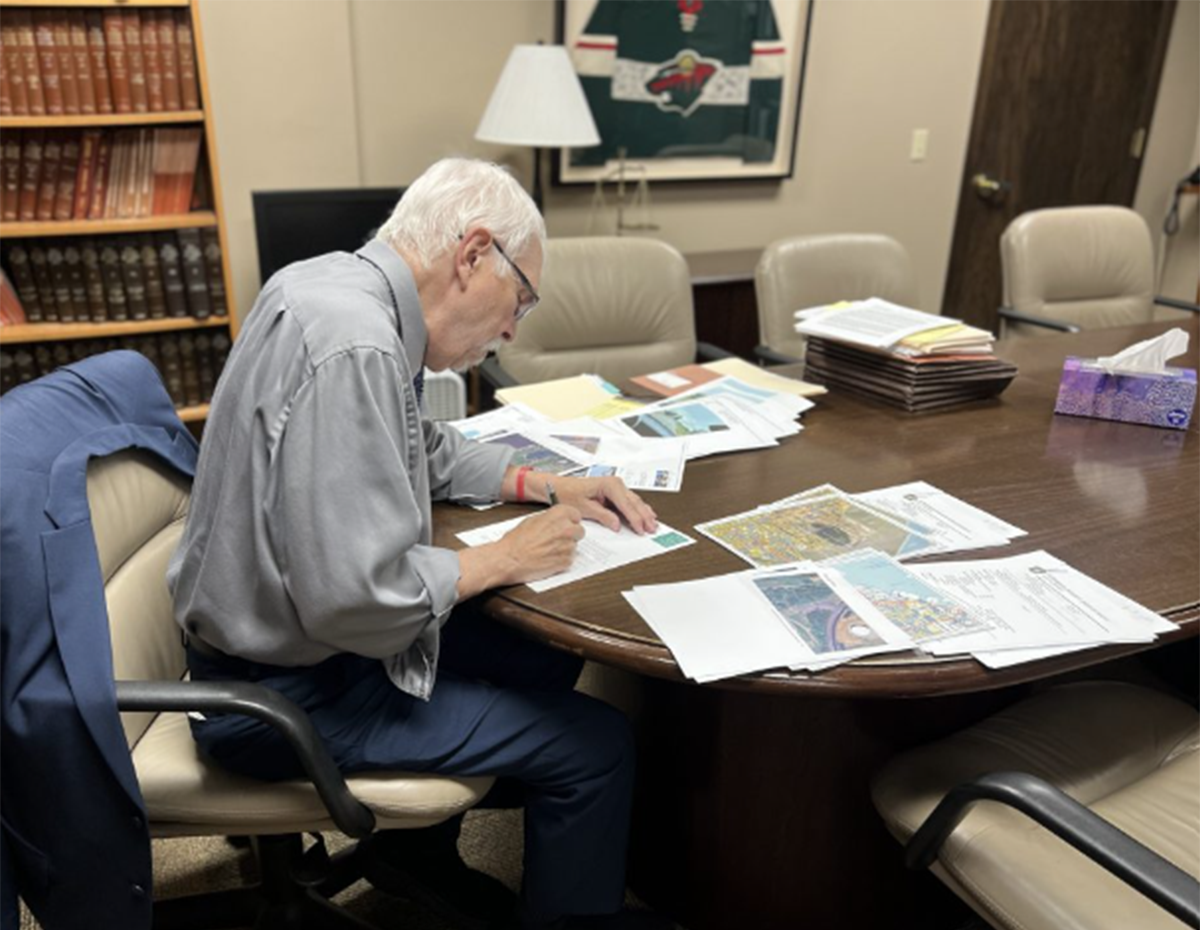With billions of dollars allocated and thousands of troops committed, the war in Iraq is a central issue in the approaching presidential election.
Both President Bush and Sen. John Kerry, D-Mass., advocate their own positions on the war and the implementation of democracy. But one UW-Eau Claire student recently reflected on the war as well, offering his own perspective based on personal experience.
| “It’s a lot different than when you watch the news.” –Jeff Baldovin Junior |
Junior Jeff Baldovin is a secondary education major who just returned to school this fall after an 11-month stint in Iraq. A member of the National Guard, Baldovin was called to service in March 2003. He is one of 100 Eau Claire students in the National Guard and Army Reserves, 55 of whom have been called to active duty, according to Diane Stegner-Roadt of Veteran Services.
“It’s a lot different than when you would watch the news,” Baldovin said, explaining that the protests and constant conflict shown by the media. Those images do not reflect the whole story in Iraq, he said.
Trained as an engineer by the army, Baldovin was responsible for operating heavy machinery for the construction of clinics, irrigation systems, power plants, roads and schools.
His experiences in Iraq allowed him to see the positives aspects of American intervention, apart from the politics.
“Should we have gone in there? I can’t answer that,” Baldovin said. “But, from my standpoint, I saw a lot of good things.”
He explained that working on Iraq’s infrastructure allowed him to help provide Iraqis with necessities they never would have received under Saddam Hussein. Conceding that there are numerous other nations that could use the same attention, Baldovin said he feels that regardless of the politics, the Iraqi people are better off.
“The fact that they didn’t find weapons of mass destruction is a negative,” he said, “but those people lived without education or health care, so it’s definitely a positive and has promoted democracy.”
Authority is currently in the hands of an Iraqi interim government striving for stability in preparation for future elections. Despite major combat having been declared over, efforts by extremist groups have threatened the stability almost constantly – U.S. deaths reached 1,000 on Sept. 7.
Bush’s speech at the Republican National Convention Sept. 2 did not address charges that Hussein never possessed weapons of mass destruction, one of the main justifications for the invasion. But he did comment on the lack of evidence to confirm a connection between al-Quaeda and Hussein’s regime, asking, “Do I forget the lessons of Sept. 11 and take the word of a madman, or do I take action to defend our country?”
But justifying the war became irrelevant when, in late August, Bush asked Kerry if he still would have voted for the war while in Senate if he knew what America knows now.
Kerry replied he would have voted to grant the president “the authority” to invade Iraq, even with the knowledge there were no weapons of mass destruction.
“I believe it’s an authority the president should have,” Kerry stated when blasted for allegedly flip-flopping on the war several times since he initially approved it in Senate in 2003.
Kerry maintains that the removal of Hussein was a positive initiative, but abhors how the authority was used, said Kerry spokesman George Twigg.
“He (Kerry) said all along that the vote was a vote to hold Saddam Hussein accountable,” Twigg said. “It was his expectation that the administration would take a number of steps before actually going to war, like forming a broader international coalition.”
A Kerry speech given in Cincinnati referred to the president’s failure to form a more complete international coalition of allies. He linked that failure to a strain on American resources.
“The cost of the president’s go-it-alone policy in Iraq is now $200 billion and counting,” he said. Bush’s efforts also have led to a heightened terrorist presence in Iraq, Kerry said.
Kerry promises to involve the United Nations and other international organizations to partially shift the burden off American troops and tax money. In a recent ad, the Kerry campaign says that the amount of money being spent in Iraq is “weakening us here at home.” Kerry said the president’s brand of foreign policy has alienated allies critical to the reconstruction of Iraq and victory in the War on Terror.
But the Bush campaign continues to cite alleged inconsistencies in Kerry’s position on Iraq. These inconsistencies indicate an inability to take strong action against terrorists and other threats to American security, Bush spokesperson Sharon Castillo said.
“In the global war on terror, there is a clear distinction between the two candidates in the sense that Kerry offers criticism but no clear vision. He has laid out several different positions,” she said. “We need a president we can trust to make a decision, execute it and inform the public.”
Bush also has emphasized this in several recent speeches.
Bush’s speech in Portsmouth, Ohio, suggested that Kerry’s style of foreign policy would have proven inept, claiming, “if he had his way, Saddam Hussein would still be in power and would still be a threat to our security and the world.”
– The Associated Press contributed to this report.






